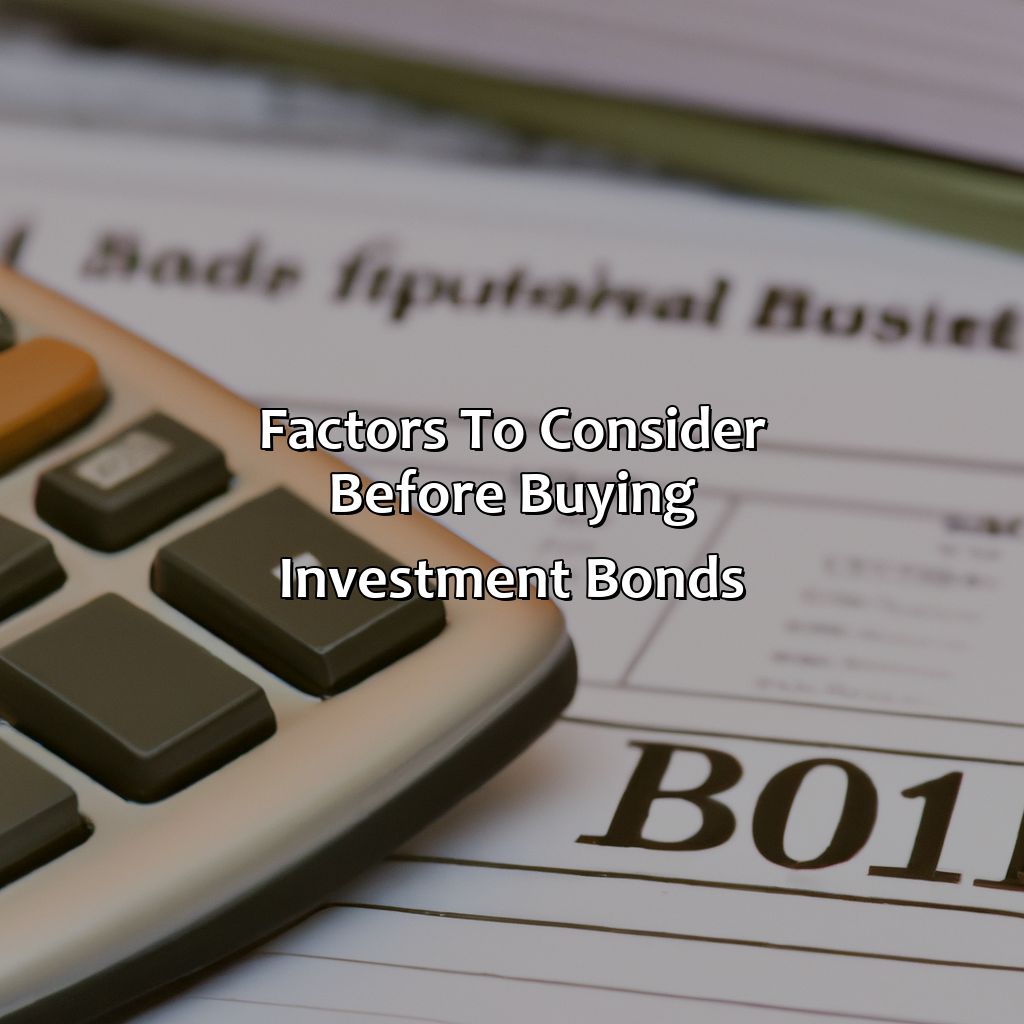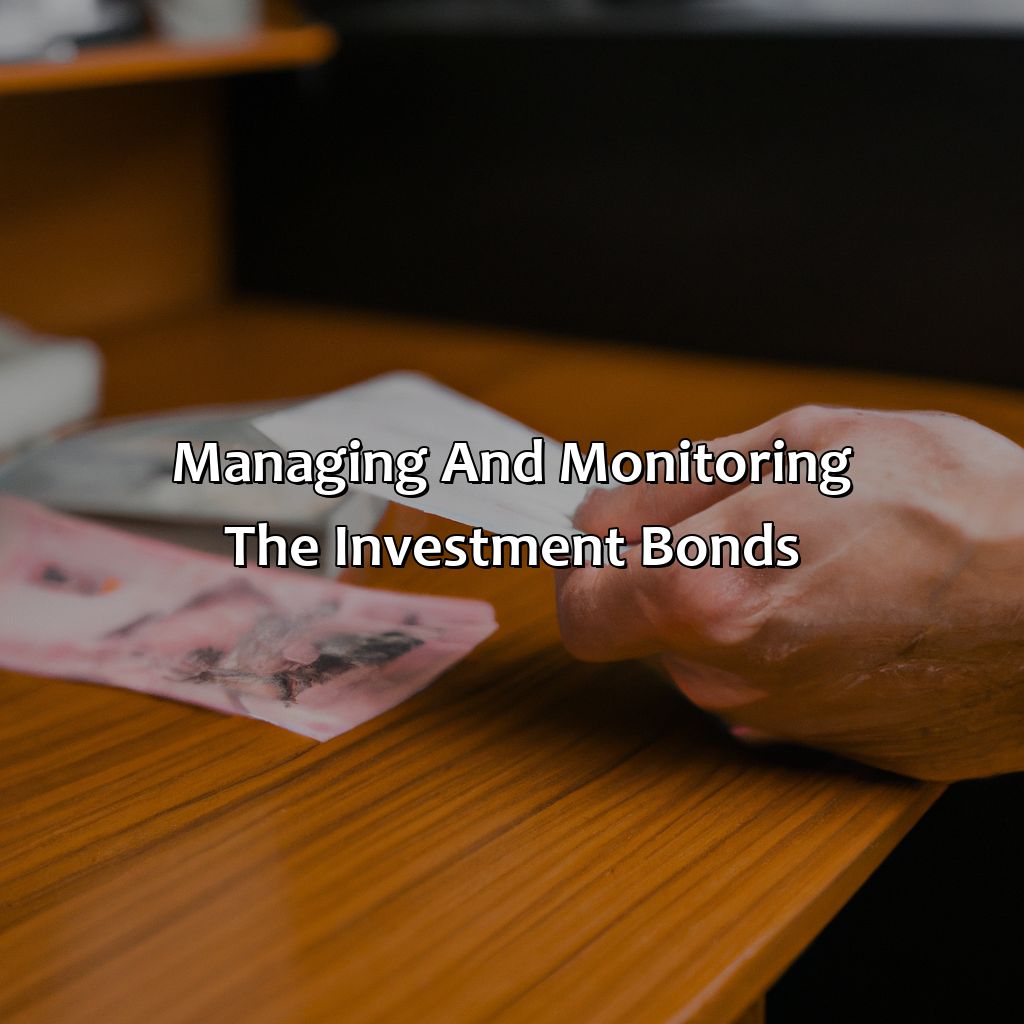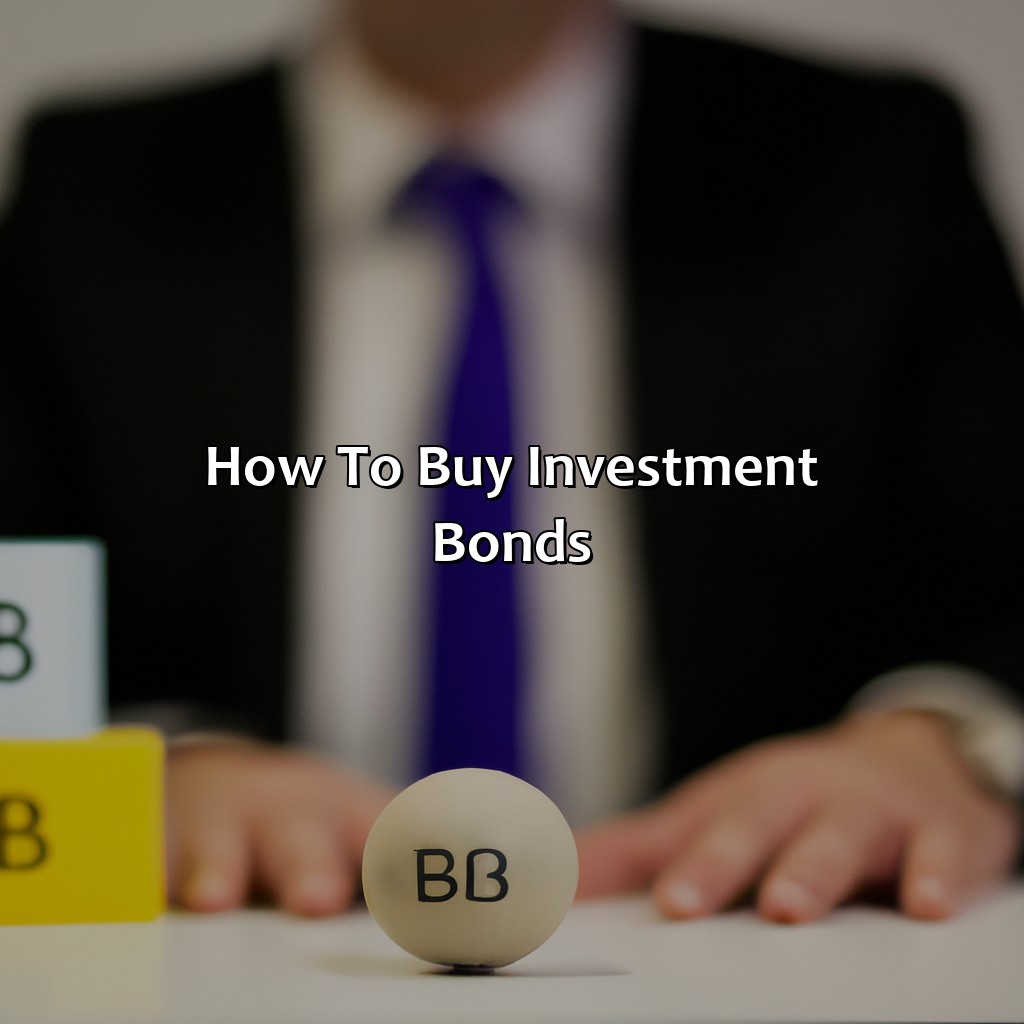How To Buy Investment Bonds?
Key Takeaway:
- Before buying investment bonds, it is important to consider factors, including the credit rating of the issuer, the maturity date, interest rates, and tax implications. These factors will help in selecting bonds that match the investor’s goals.
- Researching available options is necessary to make an informed decision about buying investment bonds. Once bonds that match the investment goals are selected, an order can be placed with a broker or financial institution. This will help in getting a fair price for the bonds.
- Managing and monitoring the investment bonds is important to ensure maximum returns. This includes keeping track of maturity dates, re-evaluating investment goals and needs, and selling or reinvesting bonds as necessary.
Are you looking to diversify your investments and secure your financial future? Bond investing can offer you stability and good returns. You can start today by learning the basics of how to buy investment bonds.
Factors to consider before buying investment bonds
In this article, we will discuss important aspects to consider when purchasing investment bonds. By understanding these key factors, investors can make informed decisions about their investments and maximize their returns.
When buying investment bonds, it is crucial to assess the creditworthiness of the issuer, consider the bond’s duration, and evaluate current market conditions. Other important factors to consider include the bond’s interest rate, diversification, and management fees.
- Issuer Creditworthiness: Before investing in any bond, investors should assess the creditworthiness of the issuing company or institution. This helps to mitigate the risk of default and ensure timely repayment of principal and interest.
- Bond Duration: The duration of a bond refers to the length of time until it matures. Investors should choose a bond with a duration that aligns with their investment goals and risk tolerance.
- Market Conditions: The current market environment plays a significant role in the performance of bonds. Investors should assess the state of the economy and interest rate trends before making any investment decisions.
- Interest Rate: The interest rate or yield on a bond determines the return that investors earn. Investors should compare the rates offered by different bonds to find the most suitable option.
- Diversification: Holding a diversified portfolio of bonds from different industries and sectors can help reduce risk and enhance returns.
- Management Fees: Investors should always consider the fees charged by the investment management company. High fees can eat into returns and reduce overall profitability.
In addition to these factors, investors should also consider the tax implications of their investments and seek guidance from a financial advisor for more personalized advice.
To ensure maximum returns on investment, it is important to carefully evaluate all factors before making any investment decisions. By understanding and applying the above principles, investors can make informed choices and maximize their returns.
Don’t miss out on potential profits and investment opportunities. Take the time to explore the world of investment bonds and make sound investment decisions today.

Image credits: retiregenz.com by Yuval Woodhock
Steps to buy investment bonds
As an investor seeking to diversify your portfolio, it may be wise to consider purchasing investment bonds. These financial instruments can provide a steady flow of income and a means of preserving capital. Here’s how to acquire them:
- Start by assessing your investment goals and risk tolerance.
- Decide how much capital you’re willing to risk and how long you’re willing to hold the bond.
- Assess your need for income or growth and identify guidelines that fit your investment style.
- Research bonds and evaluate their creditworthiness.
- Research available bonds and assess their current market performance and risks.
- Evaluate the issuer’s credit rating and make sure it meets your investment standards.
- Make your purchase through a brokerage firm, bank or dealer.
- Decide on the investment type and amount that fit your guidelines.
- Complete the necessary documentation and place your order.
Before investing, understand the costs, liquidity and maturity of the bond. Interest rates and market fluctuations can influence the bond’s value, so consider seeking professional guidance to ensure a sound investment decision.
According to Investopedia, U.S. Treasury bonds are backed by the full faith and credit of the United States government.

Image credits: retiregenz.com by Adam Duncun
Managing and monitoring the investment bonds
Investment bonds require active management and monitoring to ensure maximum returns. Regularly assessing the bond’s yield and market performance is crucial in determining whether to keep or sell it. Monitoring interest rates and making informed decisions based on market trends can maximize potential profits. Effective management includes selecting bonds with varying maturities and balancing investment risks. Stay informed on financial news and consult with an investment advisor for complex analysis. With an informed strategy, investment bonds can provide stable long-term income.
Fun fact: According to CNBC, as of 2021, the Bond market is much larger than the Stock market, with a total market capitalization of $128.3 trillion.

Image credits: retiregenz.com by Harry Washington
Five Facts About How To Buy Investment Bonds:
- ✅ Investment bonds are a form of debt security typically issued by governments or corporations. (Source: Forbes)
- ✅ The value of investment bonds can fluctuate based on market conditions and the credit rating of the issuer. (Source: Investopedia)
- ✅ Bond prices and interest rates have an inverse relationship, meaning that when interest rates go up, bond prices go down, and vice versa. (Source: The Balance)
- ✅ Investors can buy individual bonds or bond funds, which provide diversified exposure to a range of bonds. (Source: Schwab)
- ✅ Before investing in bonds, it is important to research the issuer, understand the terms of the bond, and consult with a financial advisor if needed. (Source: US Securities and Exchange Commission)
FAQs about How To Buy Investment Bonds?
What are investment bonds and how do they work?
Investment bonds are essentially loans made to a government or corporation by individual investors. These bonds provide a fixed return or interest rate to investors over a specified period of time. The government or corporation uses the funds generated from selling these bonds to finance their operations or projects. When you buy an investment bond, you are essentially lending money to the issuing entity and receive a steady stream of income by way of interest payments.
How do I buy investment bonds?
There are several ways to buy investment bonds. One way is to use a brokerage firm or online brokerage platform. Many brokerage firms offer bond trading services that allow you to buy and sell investment bonds just like purchasing stocks. Another option is to purchase bonds directly from the issuing entity, which can be done online or through a financial advisor.
What factors should I consider before buying investment bonds?
Before buying investment bonds, it is important to consider a few key factors. These may include the bond’s duration or maturity date, credit rating, interest rate, and cost of investment. You should also consider your investment goals and risk tolerance to determine if investment bonds are an appropriate investment for you.
What are the risks associated with investment bonds?
Like any investment, investment bonds come with a certain level of risk. One main risk is the possibility of default by the issuing entity, which would result in loss of principal for investors. Additionally, changes in interest rates can affect the value of investment bonds, as well as changes in the issuer’s credit rating or financial stability.
How can I minimize the risks associated with investment bonds?
To minimize the risks associated with investment bonds, you can do a few things. One way is to invest in bonds issued by reputable entities with high credit ratings. This can reduce the risk of default and ensure that you receive regular interest payments. Additionally, you may want to diversify your investment portfolio by investing in a variety of bonds with different maturities and ratings.
What type of returns can I expect from investing in bonds?
The returns you can expect from investing in bonds will depend on a variety of factors, including the interest rate of the bond, its duration, and the issuer’s credit rating. In general, investment bonds offer a lower rate of return than stocks, but provide a predictable stream of income that can be attractive to investors looking for stability and income. Always remember, past performance may not be a reliable indicator of future results.


